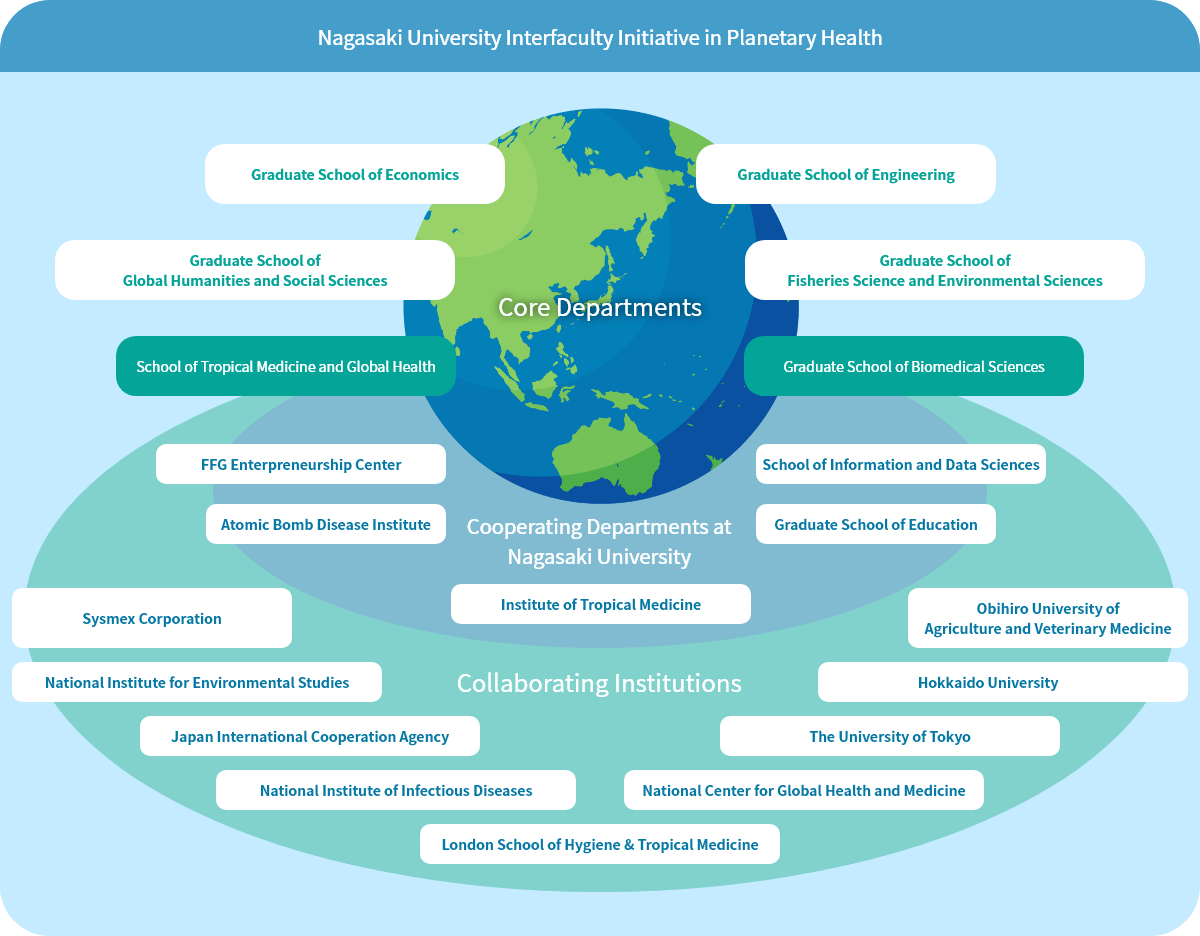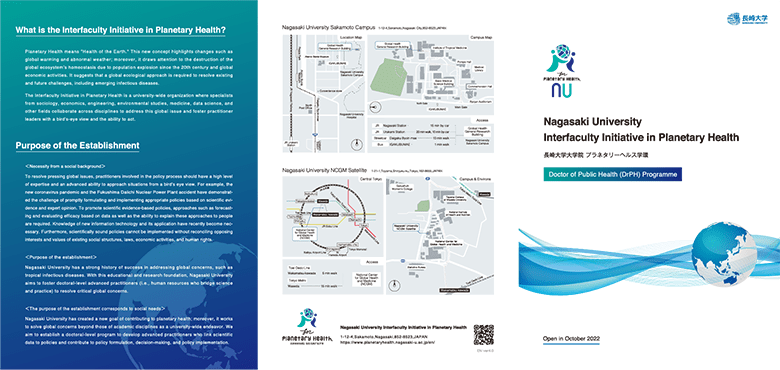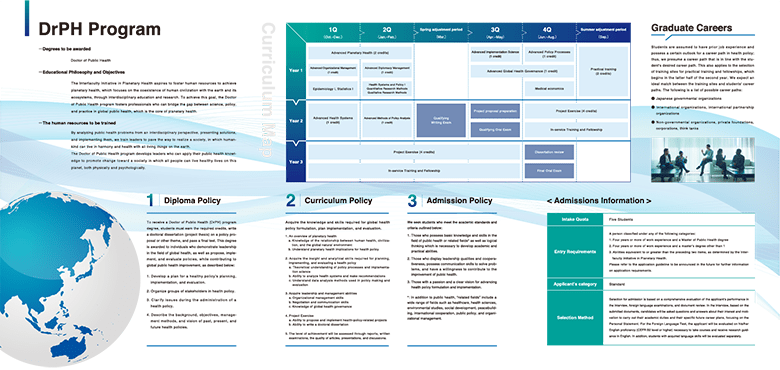What is the Interfaculty Initiative in Planetary Health?
Planetary Health means "Health of the Earth." This new concept highlights changes such as global warming and abnormal weather; moreover, it draws attention to the destruction of the global ecosystem’s homeostasis due to population explosion since the 20th century and global economic activities. It suggests that a global ecological approach is required to resolve existing and future challenges, including emerging infectious diseases.
The Interfaculty Initiative in Planetary Health is a university-wide organization where specialists from sociology, economics, engineering, environmental studies, medicine, data science, and other fields collaborate across disciplines to address this global issue and foster practitioner leaders with a bird's-eye view and the ability to act.
Message from the President
Nagasaki University has been at the forefront of infectious disease control in Japan for a long time in the fight against unknown infectious diseases. In addition to endemic diseases peculiar to remote islands, Nagasaki was the only point of contact for foreign countries during the Edo period (1603–1868). Thus, there was a need to deal with infectious diseases brought in from overseas. The accumulation of numerous experiences since then has expanded the field of infectious disease research at Nagasaki University to include the world, including the Institute of Tropical Medicine and the DEJIMA Infectious Disease Research Alliance, and has inevitably led the University to become the first university to adopt the philosophy of ‘Global Health’.
The Graduate School of International Health Development was established in 2008, and in 2015, the Department of Tropical Medicine and the Graduate School of International Health Development were merged to form the Graduate School of Tropical Medicine and Global Health. Furthermore, the Graduate School of Tropical Medicine and Global Health has also adopted the Joint Degree Program with the University of London as an outstanding graduate program.
However, in our deep pursuit to realise global health, we realised that solving the various problems that occur across the planet involves complex issues, such as environmental problems and economic disparities. A multifaceted perspective—not just a medical or health care perspective—is required.
Against this background, in January 2020, the University declared that it would further develop ‘Global Health’ and take on the challenge of ‘Planetary Health’.
We believe that planetary health is an effort to seek effective solutions to continue to support the ‘health of the planet’ including our own health, and to promote a change in our own awareness and behaviour. The quest is to find the optimal form that society should take based on its relationship with the Earth and the various ecosystems of the planet, and it is essential that the ‘viewpoints of science’ be superimposed on the ‘diverse viewpoints of citizens, businesses, and governments’.
The Interfaculty Initiative in Planetary Health was established as a university-wide organisation to bring together experts in sociology, economics, engineering, environmental studies, medicine, data science, and other fields across academic disciplines, to work towards the realisation of planetary health.
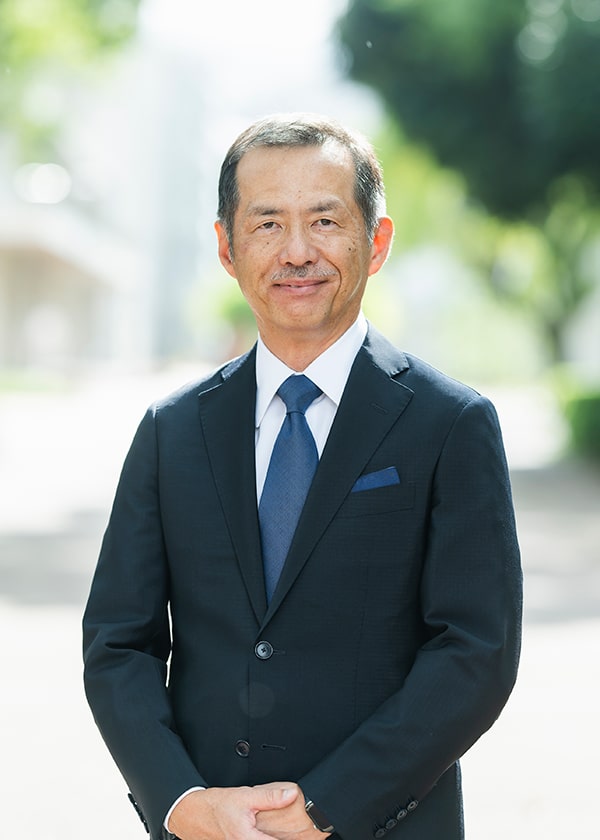
Message from the Dean
The Planet, as in the Planetary Health, does not simply mean the physical earth but rather means earth and its ecosystems, human and human society being parts of them. When all these components keep healthy or sound relationships with each other, they can be considered sustainable, and we can say planetary health is achieved. To find a sustainable solution of the issues that we are now confronting, such as pandemic, war, refugee, environmental pollution, poverty, climate change, and loss of biodiversity, we need to understand these problems in the context of planetary health. Nagasaki University manifested in the beginning of 2020 that it will strive to achieve planetary health by integrating the knowledge generated in various research areas. Since then, attempts have been made to fulfill this statement. While Nagasaki University is not the only one in the world, its 80-years long history of tropical medicine, which has been recently expanded to global health research and education, make the endeavor unique.
Interfaculty Initiative of Planetary Health takes further one step of this history, featuring cross- and trans- disciplinarity in its program. Hence, The Initiative tackles with the current challenges by collaborating with various faculties of natural and social sciences and humanities. Doctor of Public Health program is the first degree program which this Initiative offers. This program aims to raise professionals who is capable to think how to convert the knowledges generated through the cross-disciplinary activities to actions that promote people’s health in the real world. For this, the students will have opportunities to be exposed themselves to real world experiences through the field works in the administrative agency, company, or local community together with the series of unique lectures.
Since the word, Planetary Health, has only less than 10 years of history, we need courageous and intellectual creativity in unexplored areas in the research as well as actions. We hope to achieve Planetary Health together with hot (or, cool) students jump into such an exciting field!
Finally, it should be added that we have been discussing the degree programs that will follow the Doctor of Public Health in near future.

Purpose of the Establishment
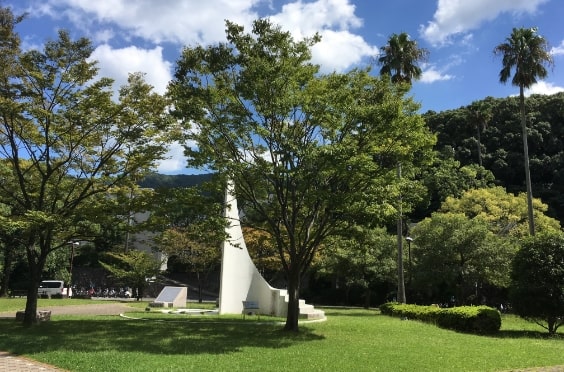
<Necessity from a social background>
<Purpose of the establishment>
<The purpose of the establishment corresponds to social needs>
Composition of Departments
